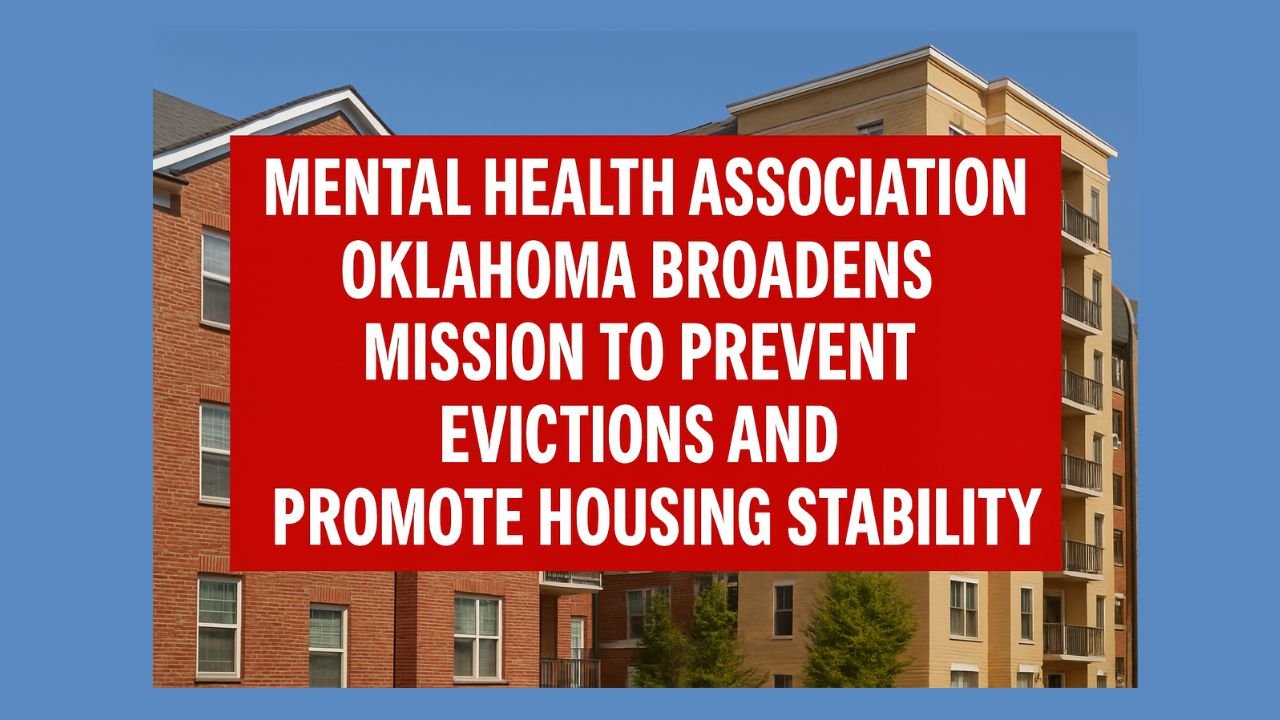Mental Health Association Oklahoma (MHAOK) is expanding its scope by incorporating eviction prevention services, addressing one of the state’s most pressing housing challenges.
With Oklahoma ranking sixth nationally in eviction rates, this new initiative aims to reduce homelessness by providing essential support to tenants and landlords alike.
Strategic Partnership with Shelterwell
To strengthen this mission, MHAOK has partnered with Shelterwell, a nonprofit based in Oklahoma City that focuses on housing security and eviction mediation.
Previously, MHAOK primarily supported individuals already experiencing homelessness. However, this partnership now allows them to proactively prevent homelessness before it begins.
“Many of these individuals have no safety net. They don’t have the luxury of a network to lean on in times of crisis,” said Carrie Blumert, CEO of MHAOK.
Services Expanded Under the New Mission
The collaboration will allow MHAOK to expand Shelterwell’s existing programs across Oklahoma County. These initiatives include:
- Eviction Mediation Services within the county’s court system to reduce legal disputes.
- Pre-filing support, offering early intervention to resolve issues before an eviction notice is filed.
- LiveSteady tenant education, which empowers renters and enhances landlord-tenant relationships.
- Landlord training, equipping property owners with communication tools and conflict-resolution strategies.
Brad Senters, manager of eviction prevention at Shelterwell, emphasized the growing urgency:
“Evictions are continuing to rise, with nearly 18,000 eviction cases reported annually in Oklahoma County.”
With evictions on the rise and a growing number of individuals at risk of homelessness, Mental Health Association Oklahoma’s expanded mission is a proactive step toward fostering housing stability.
Through its partnership with Shelterwell, the organization is not just supporting people in crisis but also working upstream to prevent housing loss and build stronger, more resilient communities.




